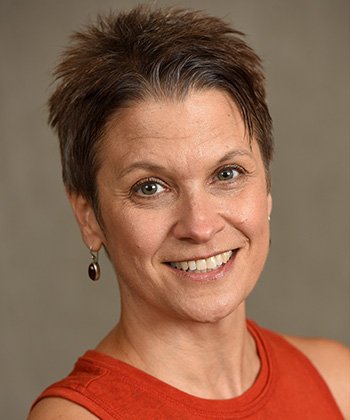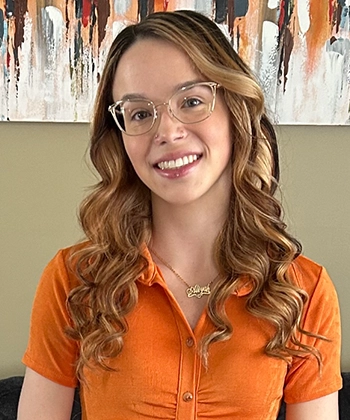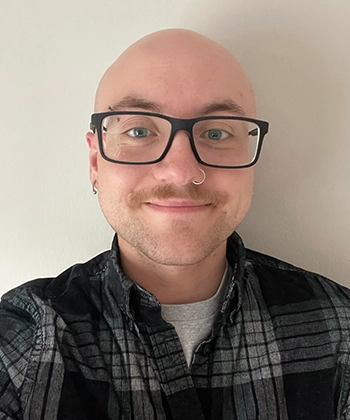
Professor
Ph.D., The University of Akron
School of Health Sciences
(440) 826-2197, bchapin@bw.edu
Explore the complexities of the human mind and behavior. Learn why people think, feel and behave as they do. Whether your career interest is in applied psychology (counseling, industrial/organizational, legal, neuropsychology, forensic, sport or school psychology), or in a medical profession, scientific research or in teaching, psychology is a versatile major that will help you understand biological, psychological and social causes of behavior.
Baldwin Wallace's psychology major combines rigorous coursework with extensive research and community engagement opportunities. You'll explore the broad areas of human development, experimental psychology, applied psychology and human relations. Through elective courses, you will then personalize your major to align with your career interests.
Psychology is offered as a major and minor. The coursework provides a theoretical and empirical framework for your studies. You'll progress from learning the basics of psychology to gaining knowledge and skills that will enable you to analyze data, communicate complex information, and understand behavior and mental processes.
A four-course sequence that includes semester-long courses in statistics, statistical analysis software, research methods and thesis provide an outstanding opportunity to gain advanced research skills. As part of your studies, you'll conduct original research that includes data collection and analysis, scientific writing and oral presentation.
View a full list of courses and course descriptions for the psychology major >
BW's psychology major prepares students to:
BW's affiliated social work program enables students to earn a bachelor's degree from BW and a master's degree in social work from Case Western Reserve University in only five years.
BW’s Master of Arts in Clinical Mental Health Counseling (CMHC) offers psychology program graduates an opportunity to earn a master’s degree in 24 months through a full-time cohort program. The CMHC program prepares students to become licensed professional counselors (LPC), working with clients to improve their mental health and well-being. Learn more.
Small class sizes, individual attention and faculty mentoring are central to the psychology program. You'll learn from professors who hold doctorates in their subject areas and have decades of teaching experience.
Members participate in chapter-sponsored research and service projects. They also travel to conferences to present their research and to build skills in professional development.
Offering educational, professional and social opportunities, the Psychology Club helps students learn about a range of psychology-based topics and coordinates activities that include guest speakers, field trips and service.
The BW Jacket Philanthropy Program is a course-based, service-learning program that engages students in volunteerism and the grant-making process. Courses are open to students of all majors, from first-year students to seniors. Courses have been offered in business, English, psychology and sociology.
You'll learn in the classroom, then take that knowledge and apply it in a lab. You'll gain advanced skills and hands-on learning experiences comparable to those of a master's level program.
The quality of research through faculty-student collaboration and student thesis are outstanding. Many BW students have presented their research at professional conferences like the American Psychological Association, the Association for Psychological Science and the Society for Neuroscience. Other students have had their research published in scholarly journals.
At BW, you can participate in faculty-led research as early as your first year. The psychology department has facilities for human and non-human research, including:
This lab utilizes animal models to better understand normal and disordered human behavior. Recent studies have focused on anxiety, anorexia, autism and drug addiction. Faculty researcher: Dr. Brian Thomas
The social, developmental and counseling psychology lab allows for computer research, video recording and the observation of human participants in research rooms equipped with one-way mirrors. Faculty-led projects have included social rejection, self-concept and child research. Faculty researchers: Dr. Stephanie Rothman, Dr. Deb Esty and Dr. Jennifer Perry
Using ecological momentary assessment (EMA), the health and well-being lab studies how to sustain well-being in the midst of chronic illness and psychopathology. The research team is currently conducting a study on the emotional benefits of health behaviors (e.g., eating fruits and vegetables, physical exercise) for adults with depressive and anxiety disorders. Faculty researcher: Dr. David Disabato
BW partners with several organizations to provide psychology students with opportunities for internships, clinical field experiences and off-campus research. National and regional placement sites for students include research labs, hospitals, counseling and therapy facilities, nonprofit and community agencies, personnel offices and education centers.
The Harrington Visiting Professor series offers annual presentations by national and international experts. Past speakers have included Drs. Philip Zimbardo, Albert Bandura, Elizabeth Loftus, Walter Mischel, Anthony Marsella (BW alumnus), Robert Sternberg, David Buss, Daniel Schacter, Robert Sapolsky, Carol Tavris and Roy Baumeister, among others. Recent topics have included:
The Harrington Colloquium series offers monthly presentations by regional experts. Past speakers have included: Dr. Sandra Russ (CWRU), Dr. Eric Geyer (Cleveland Clinic Children's Hospital), Dr. John Gunstad (KSU) and Dr. Frederick Frese (NEOUCOM). Recent topics have included:
Baldwin Wallace has long championed the success of its students. Evidence of this can be seen in the extraordinary achievements of its alumni spread throughout the United States and the world.

"Since graduating from BW, I have been attending Ohio University as part of the experimental psychology Ph.D. program. I am also a teaching assistant and a member of the Structure, Concepts, and Perception (SCOPE) Laboratory. My research focuses on investigating the processes of concept formation and categorization through mathematical and computational approaches to human cognition.
"The biggest contribution to my career trajectory was that BW inspired my curiosity to engage in psychology research. The professors were always passionate and enthusiastic. Courses such as Research Method and Thesis motivated me to continue seeking research opportunities. Through independent studies, I learned more advanced statistical analyses and programming skills that can be applied to psychology research projects. These opportunities cultivated my passion for psychology research and prepared me to be successful in a graduate program and as a researcher."

"After graduation, I was accepted into a Ph.D. program in social psychology at Wayne State University where I work in a research lab aimed at understanding and preventing sexual violence.
"BW gave me many opportunities to get hands-on research experience, which helped me decide what career I wanted to pursue. Beyond the required research project as a psychology major, I was able to complete a senior thesis project, which made my graduate school applications much more competitive. Faculty were always willing to help students get the experience they needed, so I was also able to work on additional faculty-led projects. Overall, the psychology department's encouraging faculty, small class sizes, and exposure to empirical research set me up for success as a graduate student."
Deb Esty
Chair, Psychology Department
Professor
Ph.D., The University of Akron
David Disabato
Assistant Professor
Ph.D., George Mason University
Andrea Graves
Assistant Professor
Ph.D., Capella University
Nancy Gussett
Associate Professor
Ph.D., The University of Akron
Charles Levin
Professor
Ph.D., University of Illinois at Chicago
Jennifer Perry
Professor
Ph.D., University of Oklahoma
Stephanie Rothman
Associate Professor
Ph.D., University of Kentucky
Brian Thomas
Professor
Ph.D., Texas Christian University